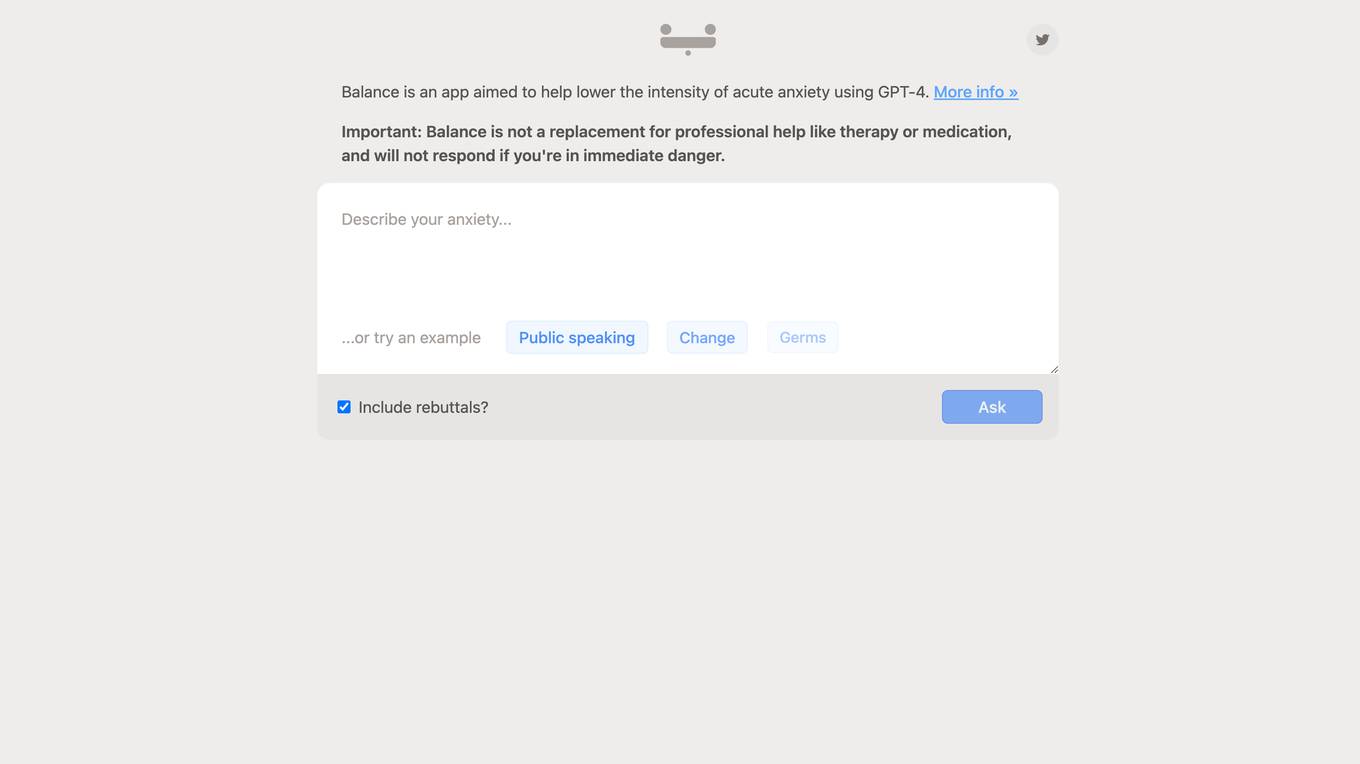Best AI tools for< Confront Fears >
1 - AI tool Sites

Balance
Balance is an AI application designed to assist individuals in managing acute anxiety by challenging anxious thoughts. It utilizes GPT-4 technology to provide support and coping strategies. It is important to note that Balance is not a substitute for professional help such as therapy or medication, and it does not provide immediate crisis intervention. The app offers a safe space for users to explore their anxious thoughts and learn how to address them effectively.
site
: 0
0 - Open Source AI Tools
No tools available
0 - OpenAI Gpts
No tools available